LWPP Participates at Women on the Frontline Conference
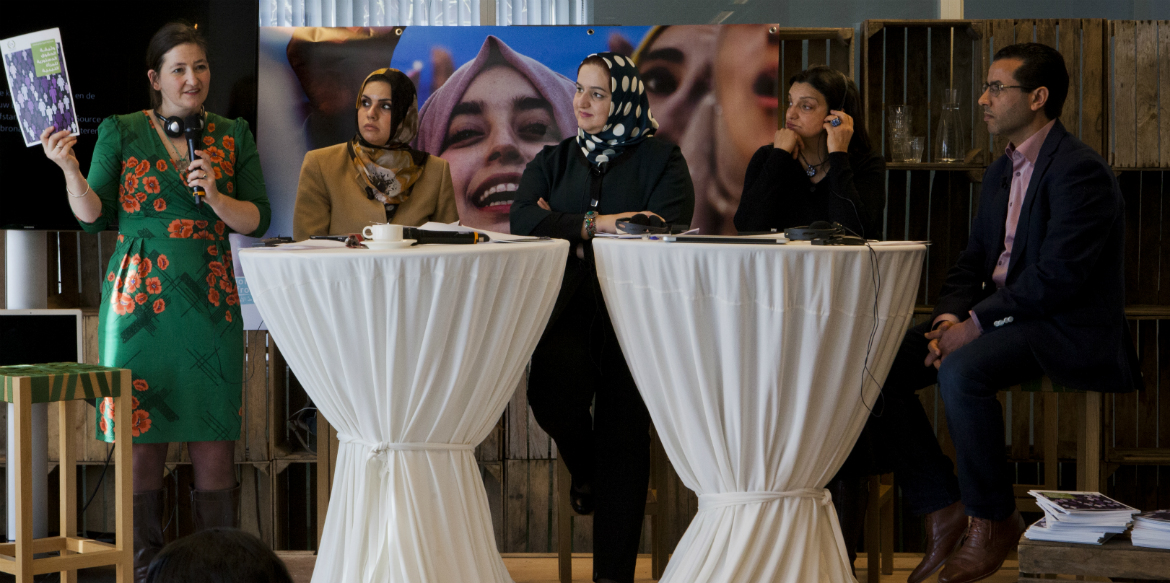
On April 20th 2016, Women on the Frontline Conference
“We need you not only to help us understand the reality in a different way, but we also need you because peace can only come if it is inclusive peace, and peace without the voice of women, without women being around the table, will not hold. Thank you very much for your activism. Let me say once more: we are with you and we will continue to be with you.”
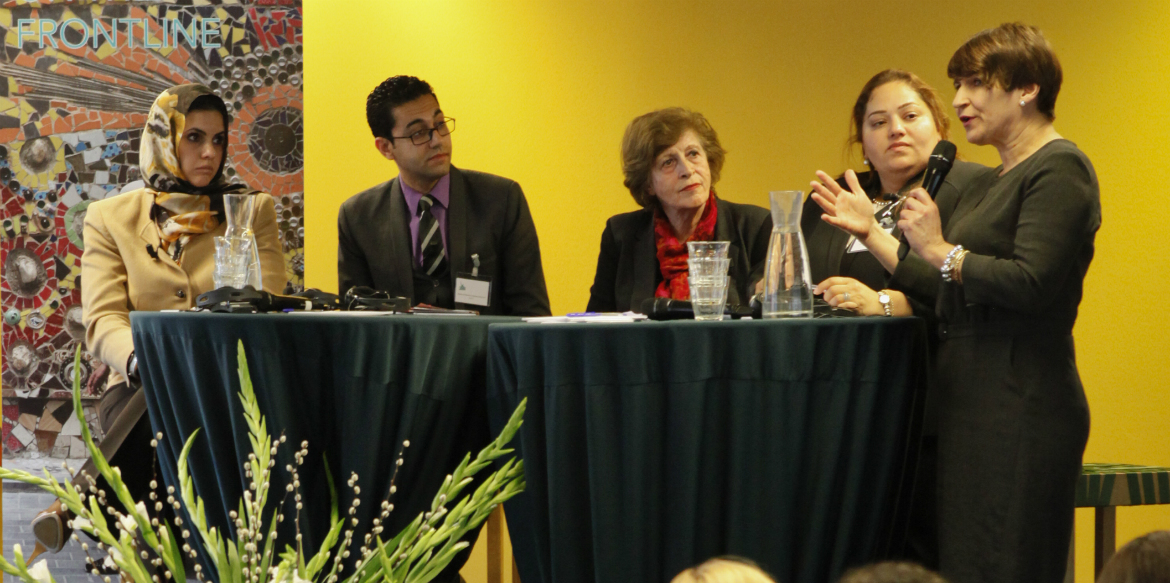
With these words, Dutch Minister for Foreign Trade and Development Cooperation Mrs Liliane Ploumen closed the Women on the Frontline conference The MENA region: 5 years later, Perspectives of civil society activists, which took place April 1 2016 in The Hague. The Minister’s words were directed at the sixty women’s rights activists from Syria, Iraq, Libya, Egypt, Yemen, Bahrain and Tunisia, the true women on the frontline, who travelled to the Netherlands to share their stories. These brave women and men represent countless other civil society activists that, against all odds, continue to fight unabated for an inclusive society based on peace, equality and human rights in a region that is embroiled in conflict and where extremism, repression and polarisation are on the rise.
As Women on the Frontline manager Jetteke van der Schatte Olivier stated in her speech:
“These activists are not dreamers; they are the change agents who will bring peace and democracy. In the long run, their stories will become the headlines. So women on the frontline might face setbacks, but they will not be silenced ever again.”
The conference, attended by 160 activists, NGO representatives, politicians, embassy representatives and the Dutch Ministry of Foreign Affairs, discussed the vital role of women in peace building, constitutional reform, preventing violent extremism and tackling violence against women. In lively discussions, speakers and panellists representing a wide spectrum of voices and countries, shared their, sometimes harrowing, experiences with a captivated audience.
What all their stories had in common, was the message that women are the key to real and lasting change. Or as Hibaaq Osman, founder and CEO of Karama, phrased it in her keynote speech:
“There can be no sustainability in development, humanitarian response, or conflict resolution when approaches are led from the top down. Women who have shown such resilience in the face of enormous challenges deserve our help and support. Only they can build foundations strong enough to resist the powers set against them.”
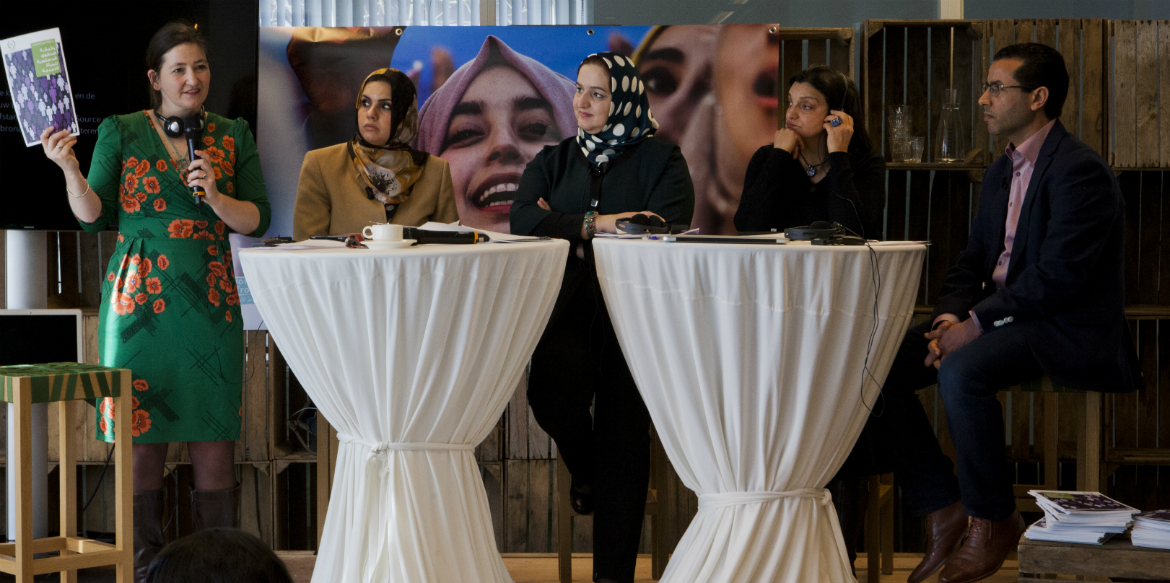
Gender-sensitive constitution building in times of transition, experiences from across the region
Moderator: Elisabeth van der Steenhoven, Director Dutch Gender Platform
Key-note: Zahra’ Langhi, Founding Director of Libyan Women’s Platform for Peace
MP Ingrid de Caluwe, Liberal party (VVD)
Panel:
Judge Nigar Mohammad, Iraqi Kurdistan
Prof. Saloua Ghrissa, Droit à la Difference, Tunisia
Dr. Suliman Ibrahim, senior researcher Van Vollenhoven Institute
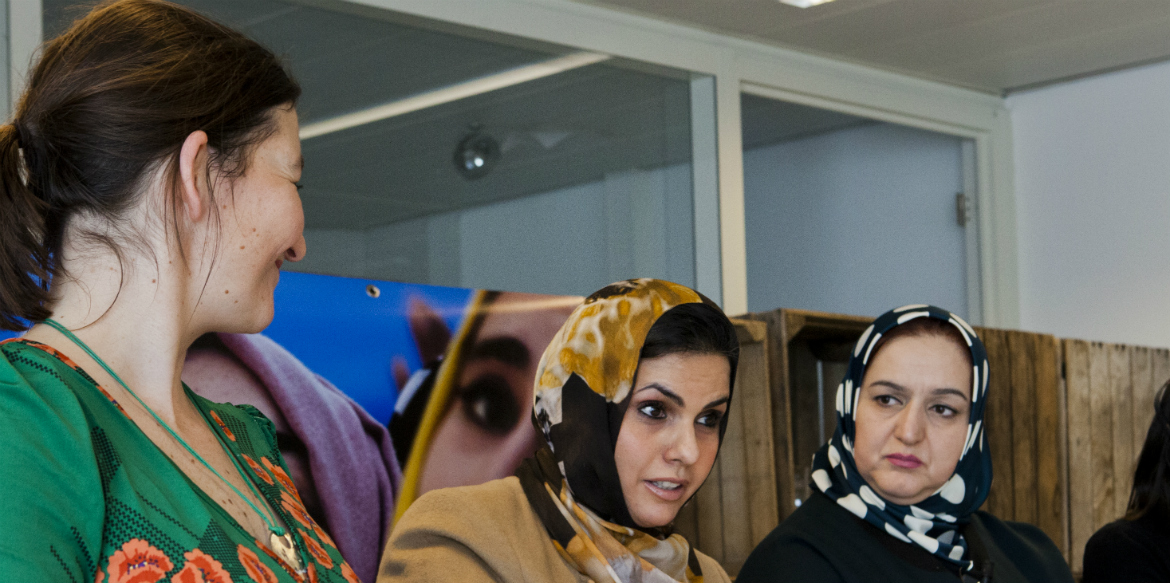
Zahra’ Langhi:
“When Libyans started writing the constitution we did so under state of war. We should have related the drafting of the constitution to peace building. We have learned constitutional building is an integral part of peace building.”
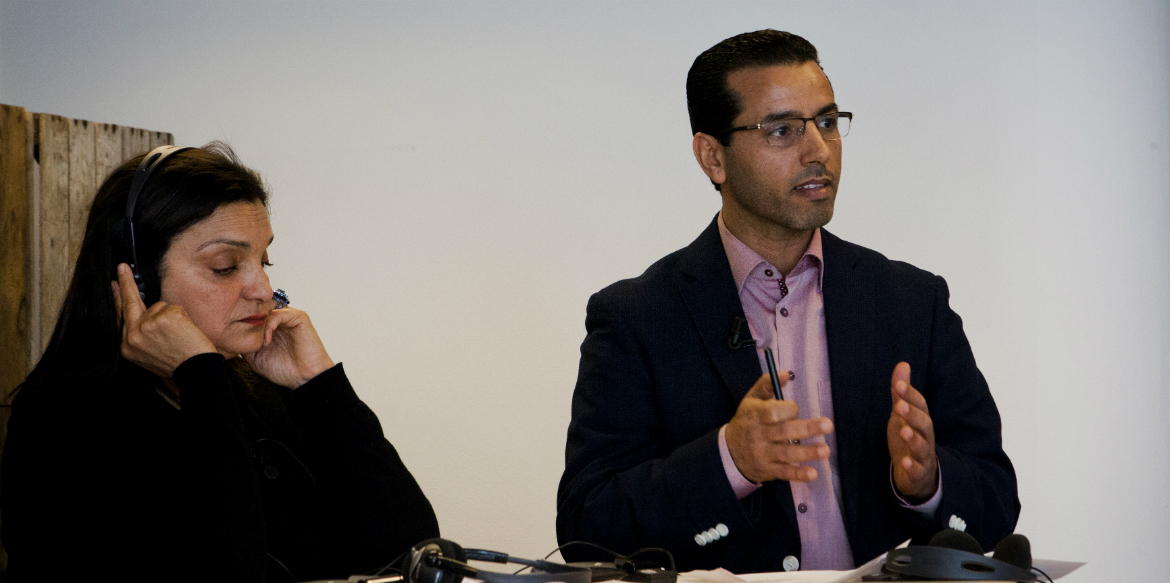
Suliman Ibrahim:
“The main question is: was it a right decision to start drafting a constitution in Libya? The answer is yes. It was an opportunity for Libya after 42 years. It was the first time for Libyans to write their own constitution. There were big questions of identity. It was a chance for Libyans to discuss key issues such as the role of religion. The decision was right, but the way the NTC went about the process was not correct.”
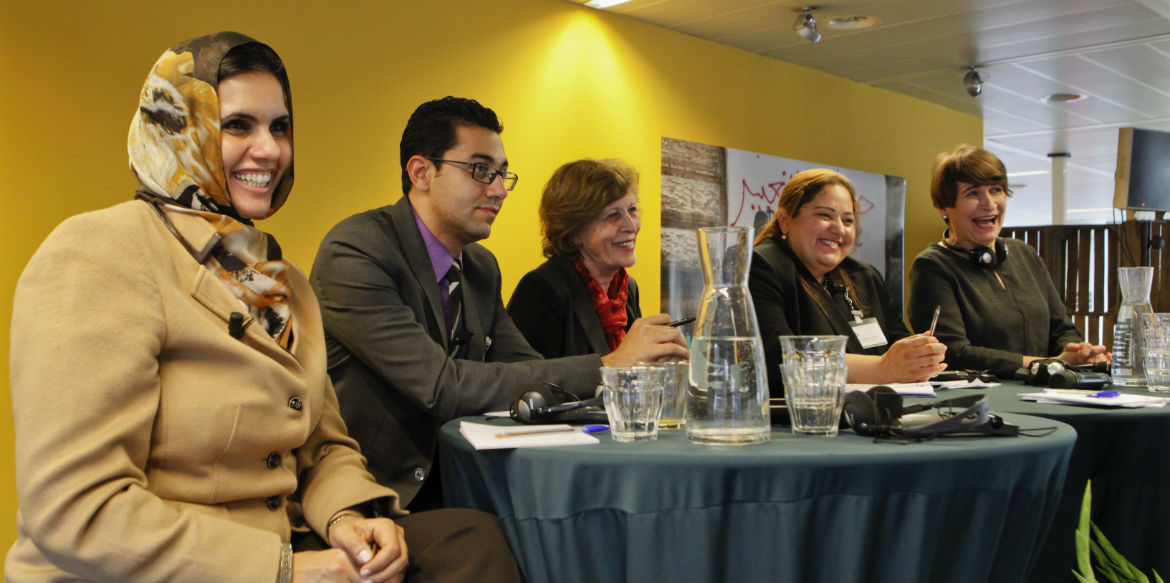
Zahra’ Langhi:
“There can be no development without peace and security. There can be no peace without equal opportunities for local communities. And there can be no viable local communities if there are no women on the frontline.”
Minister Ploumen:
“Keep reminding us that this group and the work that you are doing should not be at the margins of what is going on at the political sphere. It should be at the center. Too often, you are not in the center, so please remind me and all of us that you need to be there because sometimes it gets forgotten that again there will be no peace without you. Make sure that your voices are heard. Make sure that we know what you need.”
